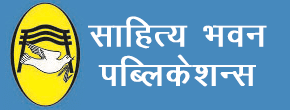The new revised edition of the book has been published strictly according to the new syllabus for B.Com. effective from the academic session 2023-24 under New Education Policy (NEP), 2020. In the new syllable following new topics have been included besides other several topics :
1. Cash Book including GST Transactions,
2. Computerised Accounting System,
Financial Accounting Including Computerised Accounting Syllabus For B.Com. Semester Ist of Govt. J. Yoganandam Chhattisgarh College, Govt. DB Girl’s P.G. Autonomous College, Govt. V.Y.T. P.G. Autonomous College Durg, Govt. Bilasa Girls P.G. Autonomous College, & B.Com. Semester IInd Kolhan University, Jamshedpur Women’s University
Unit 1 : Theoretical Framework
1.1 Accounting as an information system, the users of financial accounting information and their needs. Qualitative characteristics of accounting information. Functions, advantages and limitations of accounting. Branches of accounting. Bases of accounting: cash basis and accrual basis.
1.2 Financial accounting principles : Meaning and need; Generally Accepted Accounting Principles: entity, money measurement, going concern, cost, revenue recognition, realization, accruals, periodicity, consistency, prudence (conservatism), materiality and full disclosure.
1.3 Accounting standards: Concept, benefits and Process of formulation of Accounting Standards including Ind AS (IFRS converged standards) and IFRSs; convergence Vs. adoption; Application of accounting standards (AS and Ind AS) on various entities in India. International Financial Accounting Standards (IFRS)– meaning, need and scope; Process of issuing IFRS.
1.4 Accounting Process from recording of a business transaction to preparation of trial balance including adjustments. Application of Generally Accepted Accounting Principles in recording financial transactions and preparing financial statements.
Unit 2: Computerized Accounting Systems
2.1 Computerized Accounting Systems: Computerized Accounts by using any popular accounting software Creating a Company; Configure and Features settings;
2.2 Creating Accounting Ledgers and Groups; Creating Stock Items and Groups; Vouchers Entry;
2.3 Generating Reports : Cash Book, Ledger Accounts, Trial Balance, Profit and Loss Account, Balance Sheet; Cash Flow Statement.
2.4 Selecting and shutting a Company; Backup and Restore data of a Company.
Unit 3 : Business Income, Accounting for Hire Purchase and Instalment Systems
3.1 Business income: Concept of Revenue and Business Income, Measurement of business income; relevance of accounting period, continuity doctrine and matching concept in the measurement of business income; Objectives of measurement of Business income.
3.2 Revenue recognition: Recognition of expenses and income. Recognition of expenses and income with a reference to AS 9 and Ind AS 18.
3.3 Meaning, features, advantages and disadvantages of Hire Purchase and Instalment Systems.
3.4 Accounting for hire purchase and instalment transactions including transactions of high value and small value, default and repossession (manually and using appropriate accounting software).
Unit 4: Financial statements of Sole Proprietorship and Partnership Firms
4.1 Capital and revenue expenditures and receipts: general introduction only.
4.2 Praeparation of financial statements of non-corporate business entities-Sole Proprietorship and Partnership firms (both manual and using appropriate software).
Unit 5: Accounting for Branch and Not-for-Profit Organisations
5.1 Accounting for Branch : Concept of Dependend branches; Branch Accounting – debtors system, stock and debtors’ system, branch final account system and wholesale basis system. Independent branches : concept, accounting treatment with necessary adjustment entries; Incorporation of Branch Trial Balance in Head Office Books for home branches.
5.2 Accounting of Not-for-Profit Organisation : Meaning of Not-for-Profit Organisation , Significance of Receipt and Payment Account, Income and Expenditure Account and Balance Sheet; Difference between Profit and Loss Account and Income and Expenditure Account; Preparation of Receipt and Payment Account, Income and Expenditure Account and Balance Sheet.
CONTENTS
Financial Accounting
- Shri Kalyan Subramani Aiyar (1859-1940)
- Nature And Scope Of Accounting
- Generally Accepted Accounting Principles :
- Indian And International Accounting Standards 25
- Concept Of Double Entry System
- Preparation Of Journal
- Journal Entries Of G
- Sub-Division Of Journal : Cash Book
- Ledger (Including Rules Of Posting)
- Trial Balance
- Final Accounts
- Capital And Revenue
- Measurement Of Business Income
- Revenue Recognition : As-9
- Concept And Accounting Of Depreciation
- Valuation Of Inventories
- Branch Accounts
- Accounting Of Not-For-Profit Organisations
- Hire-Purchase System
- Instalment Payment System
- Departmental Accounts
Computerised Accounting
- Computerised Accounting System
- Popular Accounting Software Tally
- Creating Group, Ledger And Vouchers Entry
- Creating Stock Groups And Stock Items And Accounting Vouchers
- Generating Reports
● Objective Type Questions With Answers (Based On Computerised Accounts)














Reviews
There are no reviews yet.